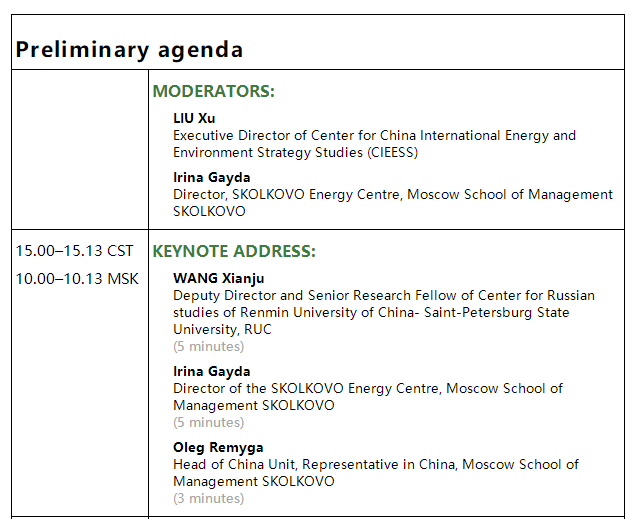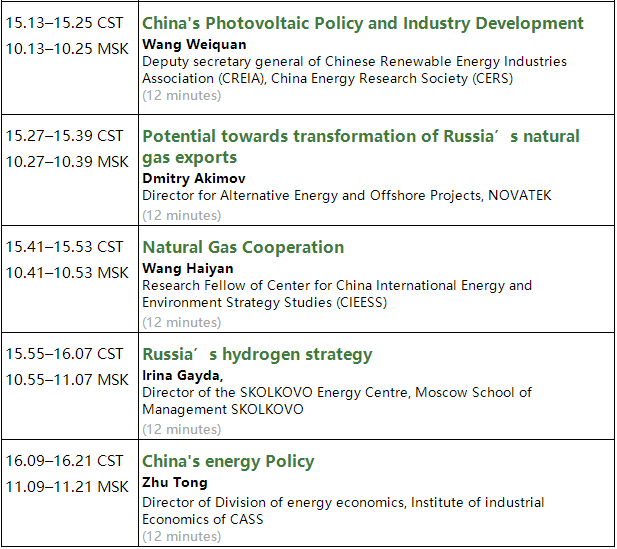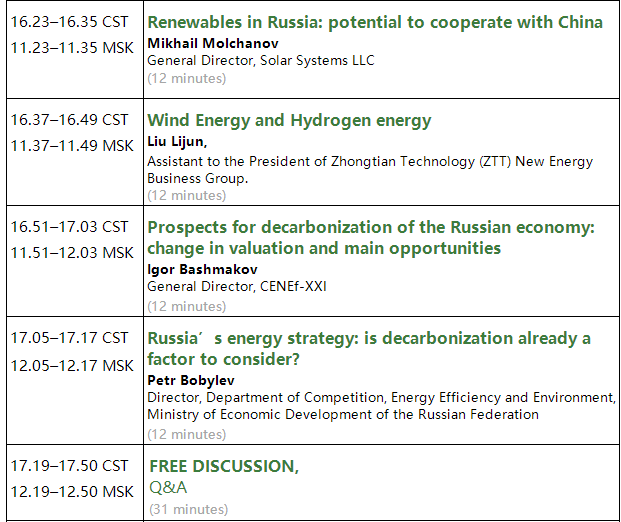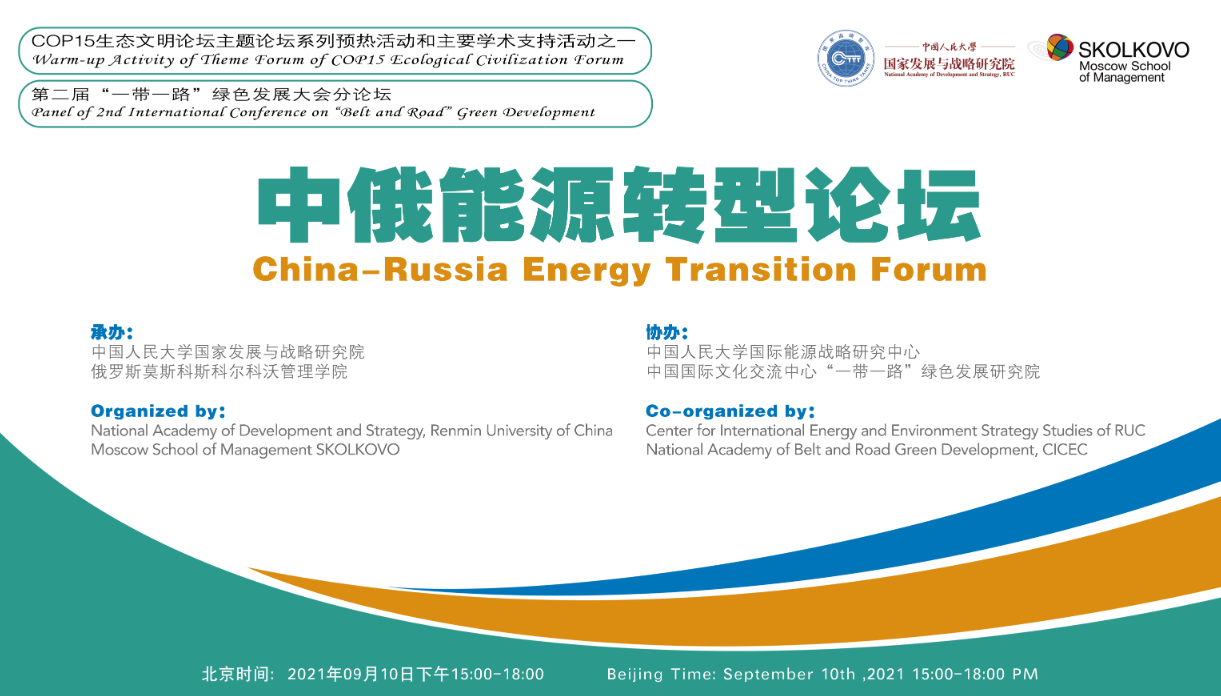09
SeptemberCHINA-RUSSIA ENERGY TRANSITION FORUM
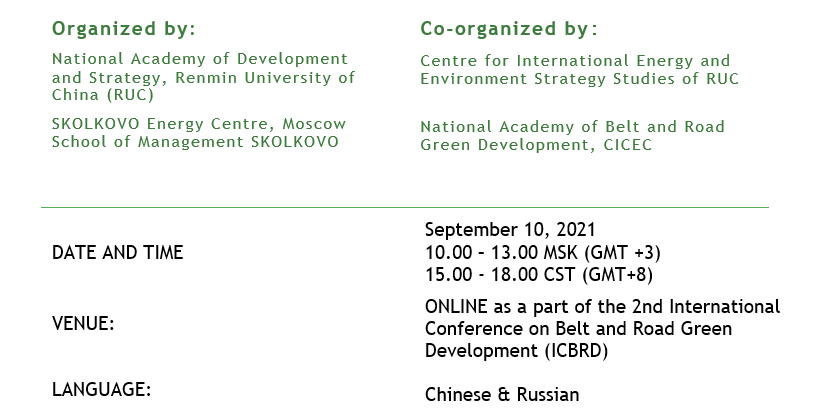
Outline
The decarbonization policy aimed at cutting greenhouse gas emissions in the global economy in the fight against climate change is the most important driver of the global energy transition. These targets require radically transforming energy systems to a low carbon model.
This is especially relevant for resource rich countries such as Russia and huge energy consumers such as China.
China’s economic ascent led the country to become the world’s largest energy consumer in 2009, surpassing the US. Today, China accounts for nearly 25 percent of the global energy consumption. Coal is the dominant energy source in China.
However, in line of the Paris Agreement, China has pledged to achieve the peaking of carbon dioxide emissions around 2030 and making best efforts to peak early; source 20 percent of its energy from low-carbon sources by 2030 and to cut emissions per unit of GDP by 60-65 percent of 2005 levels by 2030.
The development of renewable energy is a cornerstone of China’s energy strategy. Today, China is home to 30 percent of the global installed renewable capacity.
China, is a very important market for Russia’s energy exports. In 2020, Russia exported some 84 million tons of crude oil, some 11 bcm of natural gas (pipeline and LNG) and 29 million tons of coal to China. Natural gas exports from Russia to China are expected to grow in the coming years via the Power of Siberia pipeline and amid the launch of new LNG plants in the Russia’s Arctic.
Therefore, energy transition trends in China are of utmost importance for Russian energy exporters. At the same time, Russia has started its discussion on transformation of its energy exports. First carbon-neutral LNG cargoes already exported from Russia (carbon offsets were used). Novatek is studying the possibilities to produce ammonia and hydrogen, with carbon capture and storage (CCS) technology. Gazprom plans to accumulate own technological competencies (methane pyrolysis) in the field of hydrogen production.
Russia and China have vast potential for cooperation in the field of decarbonization. It can be equally fair not only for exports and imports of decarbonized energy products, but for wider technological and knowledge exchange, joint pilot and commercial projects for new forms of energy.
